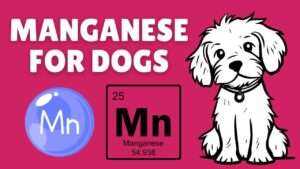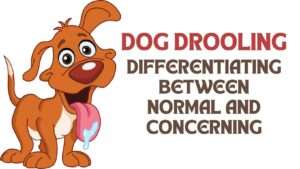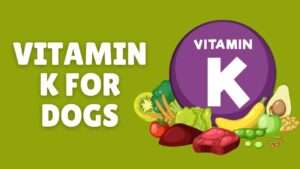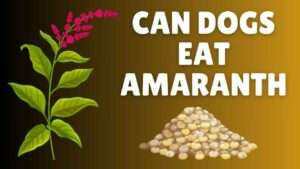Quinoa, often hailed as a superfood for its nutritional richness, has gained popularity in human diets due to its high protein content and numerous health benefits. But what about our four-legged friends?
Can dogs safely eat quinoa? In this comprehensive guide, we’ll delve into the nutritional profile of quinoa, its potential benefits, and risks, and how to incorporate it into your dog’s diet responsibly.
Contents Overview
What are Quinoa
Quinoa is a nutrient-rich grain that has gained popularity as a health food. Native to the Andean region of South America, it’s known for its high protein content and is considered a complete protein, meaning it contains all nine essential amino acids. Quinoa is also gluten-free, making it a suitable option for those with gluten intolerance. Its versatility in cooking and mild, nutty flavor make it an excellent substitute for rice, couscous, or pasta in various dishes.
Nutritional Value of Quinoa
Quinoa is highly nutritious, offering a range of essential nutrients. One cup of cooked quinoa provides about 8 grams of protein, 5 grams of fiber, and a good amount of vitamins and minerals, including iron, magnesium, phosphorus, manganese, and folate. It’s also rich in antioxidants and contains all nine essential amino acids, making it a complete protein. Additionally, quinoa is gluten-free, making it a valuable dietary option for those with gluten sensitivities or celiac disease.
Can Dogs Eat Quinoa safely?
Yes, dogs can eat quinoa safely in moderation. Quinoa is a healthy source of protein, fiber, and essential vitamins and minerals for dogs. It is often included in high-quality dog foods. However, it should be cooked plain without any added salt, spices, or seasonings that could be harmful to dogs. Always introduce new foods gradually and consult with a veterinarian to ensure it’s suitable for your dog’s diet.
Potential Benefits of Quinoa to Dogs
Quinoa can offer several potential benefits to dogs:
Nutrient-Rich: Quinoa is a good source of protein, fiber, vitamins, and minerals, which can contribute to a balanced diet for dogs.
Complete Protein: Quinoa contains all nine essential amino acids, making it a valuable source of protein for dogs.
Gluten-Free: Quinoa is naturally gluten-free, making it suitable for dogs with gluten sensitivities or allergies.
Digestive Health: The fiber content in quinoa can promote healthy digestion in dogs, aiding in regular bowel movements.
Energy Boost: Quinoa provides carbohydrates for energy, which can benefit active dogs or those with high energy needs.
Potential Risks and Precautions of Feeding Quinoa to Dogs
While quinoa can offer benefits to dogs, there are also potential risks and precautions to consider:
Saponin Content: Quinoa contains saponins, which are natural compounds that can cause gastrointestinal upset in some dogs if consumed in large quantities. Rinsing quinoa thoroughly before cooking can help reduce saponin levels.
Portion Control: Too much quinoa can lead to digestive issues such as bloating or diarrhea in dogs. It should be fed in moderation as part of a balanced diet.
Cooking Methods: Quinoa should always be cooked plain without any added salt, spices, or seasonings that could be harmful to dogs.
Allergies: While rare, some dogs may have allergies to quinoa. Introduce quinoa gradually into your dog’s diet and monitor for any signs of allergic reactions, such as itching, vomiting, or diarrhea.
Consultation with Veterinarian: Before adding quinoa to your dog’s diet, it’s essential to consult with your veterinarian to ensure it’s suitable for your dog’s individual health needs and dietary requirements.
Safe Ways to Feed Quinoa to Dogs
Feeding quinoa to dogs can be done safely by following these guidelines:
Cook Plain: Prepare quinoa without any added salt, spices, or seasonings. Cook it plain with water or low-sodium broth.
Rinse Thoroughly: Before cooking, rinse quinoa thoroughly to remove saponins, natural compounds that can cause digestive upset in some dogs.
Portion Control: Feed quinoa to your dog in moderation as part of a balanced diet. Avoid overfeeding, as too much quinoa can lead to digestive issues.
Mix with Dog Food: Mix cooked quinoa with your dog’s regular food to add variety and nutritional benefits.
Monitor for Allergies: Introduce quinoa gradually into your dog’s diet and monitor for any signs of allergic reactions, such as itching, vomiting, or diarrhea. If any adverse reactions occur, discontinue feeding quinoa and consult with your veterinarian.
Consult Veterinarian: Before introducing quinoa to your dog’s diet, consult with your veterinarian to ensure it’s suitable for your dog’s individual health needs and dietary requirements.
When to Avoid Quinoa to Dog
Allergies: If your dog has a known allergy to quinoa or related foods, avoid feeding it.
Digestive Sensitivities: Dogs with sensitive stomachs or digestive issues may not tolerate quinoa well.
Uncooked Quinoa: Raw or uncooked quinoa can be difficult for dogs to digest and may cause gastrointestinal upset.
Excessive Consumption: Avoid feeding large quantities of quinoa, as it can lead to digestive problems like bloating or diarrhea.
Seasonings: Quinoa prepared with added salt, spices, or seasonings should be avoided, as these can be harmful to dogs.
Consultation Needed: Always consult with your veterinarian before feeding quinoa to your dog, especially if they have any health concerns or dietary restrictions.
Safe and Suitable Alternatives of Quinoa for Dogs
Several safe and suitable alternatives to quinoa for dogs include brown rice, barley, oats, and sweet potatoes. These options provide carbohydrates, fiber, and essential nutrients similar to quinoa, making them beneficial additions to a dog’s diet. Like quinoa, they should be cooked plain without any added seasonings or spices. Additionally, lean proteins such as chicken, turkey, or fish can be added to these grains or vegetables to create balanced and nutritious meals for dogs. Always consult with your veterinarian to determine the best dietary options for your dog’s individual needs.
Bottom Line
In conclusion, quinoa can be a nutritious addition to your dog’s diet when fed in moderation and prepared properly. While it offers complete protein, fiber, and essential nutrients, it’s crucial to consider your dog’s individual dietary needs, digestive tolerance, and any potential allergies or sensitivities. As with any new food, consult your veterinarian before incorporating quinoa into your dog’s meals to ensure they meet their nutritional requirements and promote optimal health and well-being.



































+ There are no comments
Add yours